Prevention starts with teaching the youngest
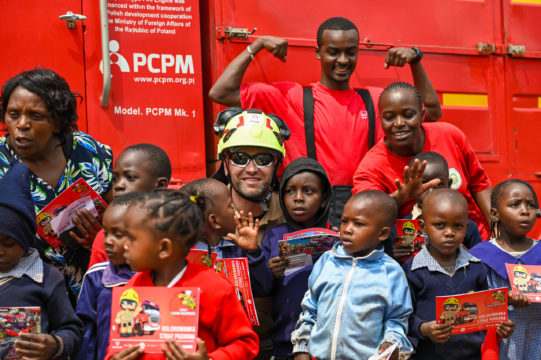
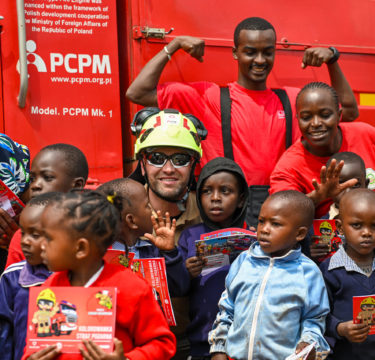
Children in Kenya can develop proper habits thanks to knowledge shared by members of the first Search and Rescue Team for building disaster response in East Africa
When to call for help and when to simply run?
As part of the professional certification process, firefighters not only pass theoretical and practical exams but also participate in extraordinary preventive classes for school children. The children learn how to respond to real threats – from fires to building collapses. Prevention, not just reaction – this is the approach PCPM implements in Kenya. In a country where dangers such as fires and building collapses are a daily reality, educating the youngest becomes a key element in building safety. It is precisely children – aware and well-prepared – who can save their own lives and those of others in the future.
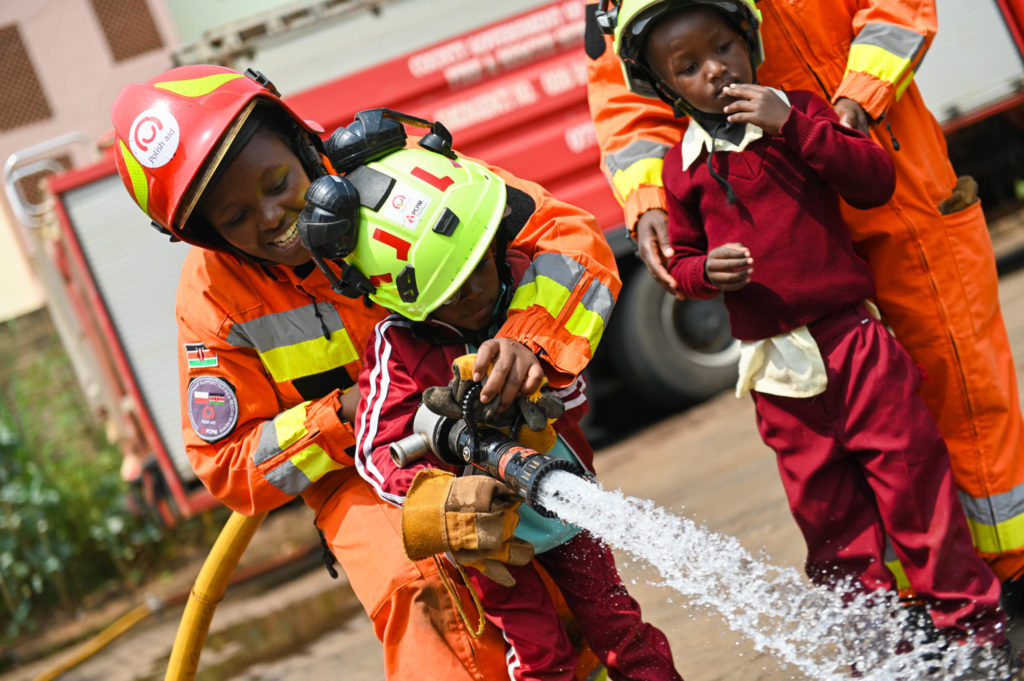
Teaching through play, building lifelong habits
The Search and Rescue Team (USAR), created by PCPM, organized a series of sessions for children from nearby schools at the Fire and Rescue Training Center in Kiambu. Through play, music, and practical exercises, children from primary schools and orphanages learned how the fire brigade operates, what rescue actions entail in building collapses, and how to recognize and respond to fire hazards. Additionally, certified firefighters explained how to safely evacuate a building in case of fire, what to say when calling for help, and gave young visitors a tour of a specialized training ground. Such knowledge can save not only their own lives but also those of their families, neighbors, or anyone nearby. In sudden and critical moments, a child who knows how to behave may be the first to call emergency services and help others leave a dangerous area.
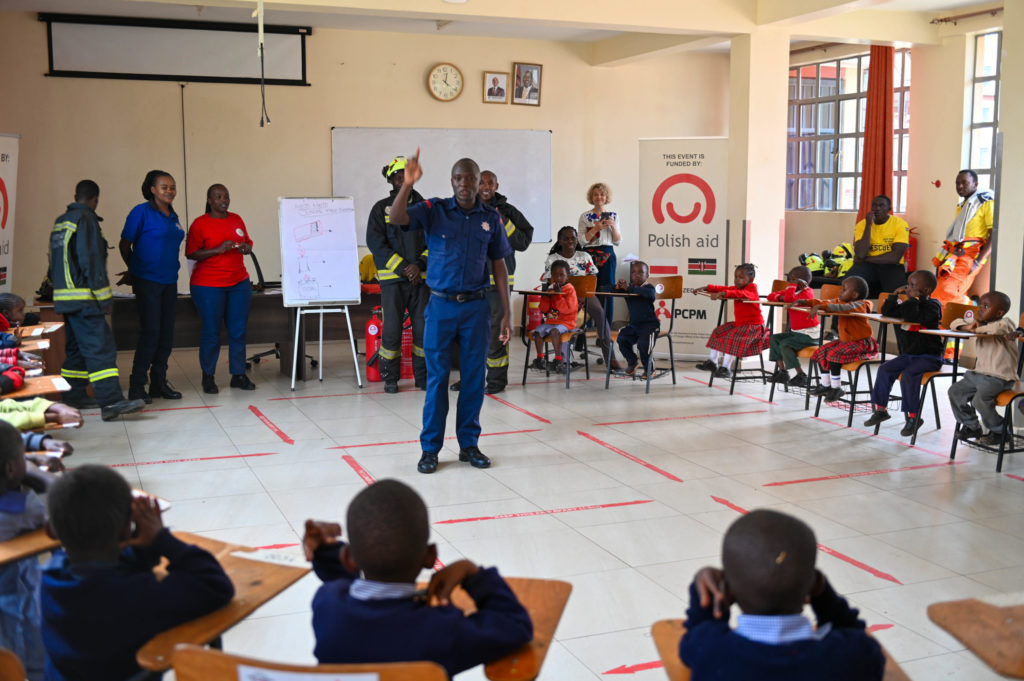
Thanks to these activities, children not only gain basic knowledge about hazards but also better understand who firefighters are and what their work involves. In Kenya, this profession is still sometimes viewed ambiguously; in some communities, firefighters have been attacked because they are not seen as effective rescuers, mainly due to an insufficient emergency response system. By teaching children what fire services really do, PCPM helps change these stereotypes, building trust and respect for rescue services. Children also learn how to call for help since different counties in Kenya use different emergency numbers. These lessons open the way for children not only to better respond in emergencies but also to develop an interest in this profession in the future. For girls participating in the sessions, it is also an important signal that women can succeed in fields traditionally dominated by men.
– A child who learns from the youngest age how to respond to threats grows into a conscious citizen. And in a country like Kenya, this knowledge is essential, emphasizes Rafał Własinowicz, PCPM firefighting instructor.
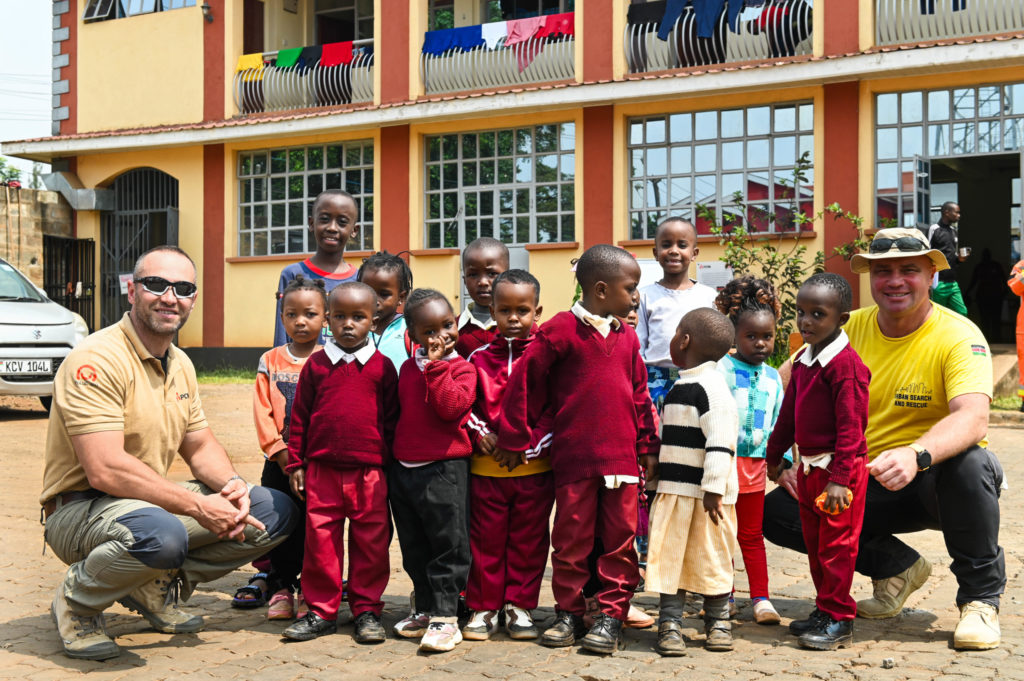
Systemic change
Preventive classes, including those targeted at school children, are part of a broader professional certification system for firefighters and rescuers. This is the only project of its kind in East Africa, developed and implemented by the PCPM Foundation in Kenya, based on specialized training, equipment and infrastructure, as well as raising social awareness about fire services and specialized rescue. Thanks to PCPM’s long-term activities spanning more than a decade, the number of fire stations in Kenya has risen from 26 to 71; the number of firefighters increased from 450 to over 1,600; more than 60% of them have completed professional training; and the country gained its first nationwide system of vocational training and recognition of rescue qualifications. This shows that building a safety system starts from the ground up, and by educating the youngest, PCPM not only meets today’s needs but also invests in the future.
The project Building the Capacity of Rescue Services in Kenya for Search and Rescue Operations during Building Disasters is implemented with funding from Polish Aid.